Photographer Stephane Sensey travelled Bali by bike as the lockdown began to take hold and discovered a paradise worth saving. He spoke to Tony Stanton.
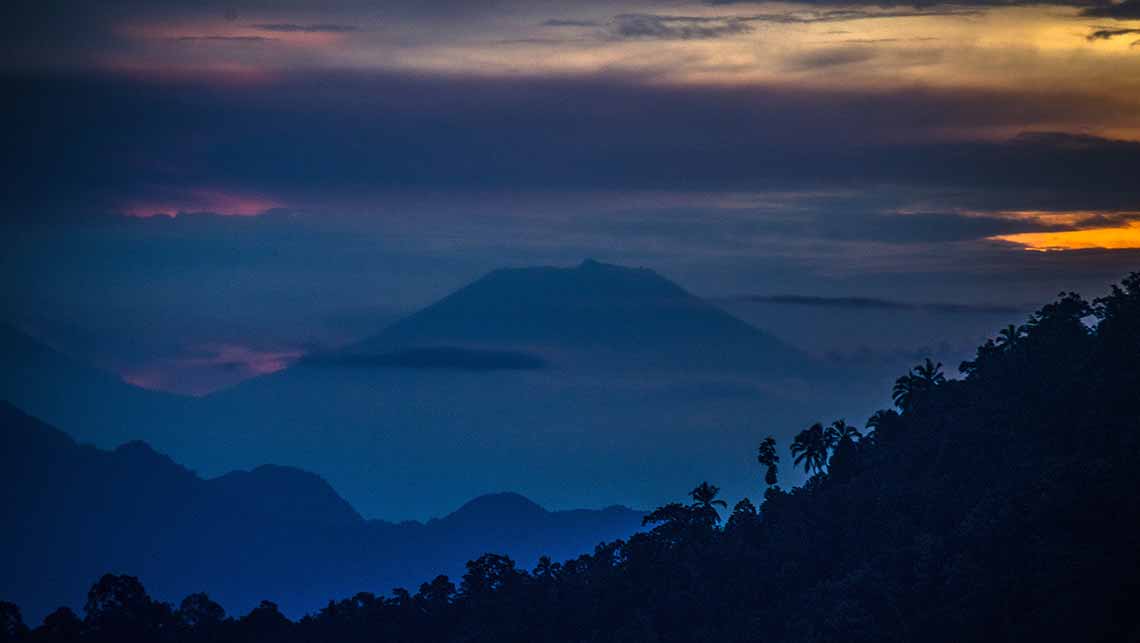
Stephane, you responded to the situation in Bali by grabbing your camera and jumping on your bike to explore the island. Where did you head to and what did you find?
I came back to Bali in March after a stay in my hometown, Biarritz, by which time the health situation in Indonesia had become quite worrying. So I decided to confine myself at home in order to avoid any risks. A month later the situation had become even more uncertain, with no more tourists arriving on the island, so I decided to take the weekend off and head into the hinterland. It occurred to me I might be able to record this historic time through photography, and to my great pleasure these few days of freedom turned into an unforgettable immersion of several weeks into authentic Bali.
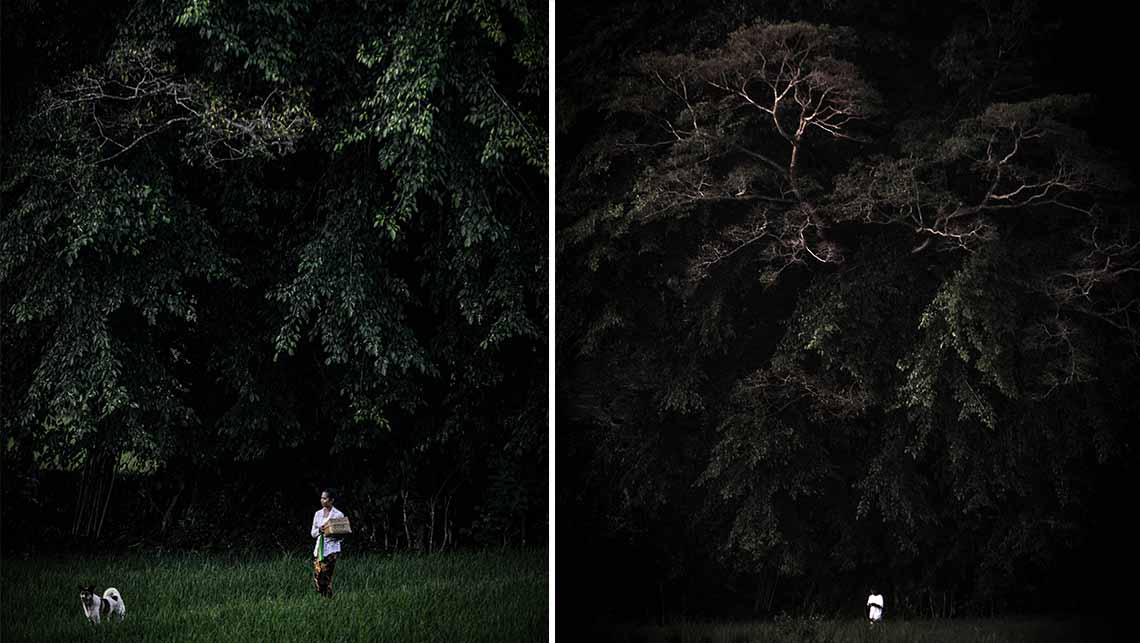
After some research I decided to head first to Munduk, and after a few photographic stops on the way I arrived at Sanak, a place of great charm and character. “Sanak“ means “family“ in Balinese, and the name perfectly matches the atmosphere of this place. It was to be my home for the next 15 days.

Sanak and its surroundings are the stuff of dreams for a photographer; you only need to take a few steps to chance upon scenes of great beauty. Every day I took to the surrounding roads and then paced the endless maze of small tracks in search of atmosphere that could represent the dignity of this Bali. It was an intense and unforgettable time.
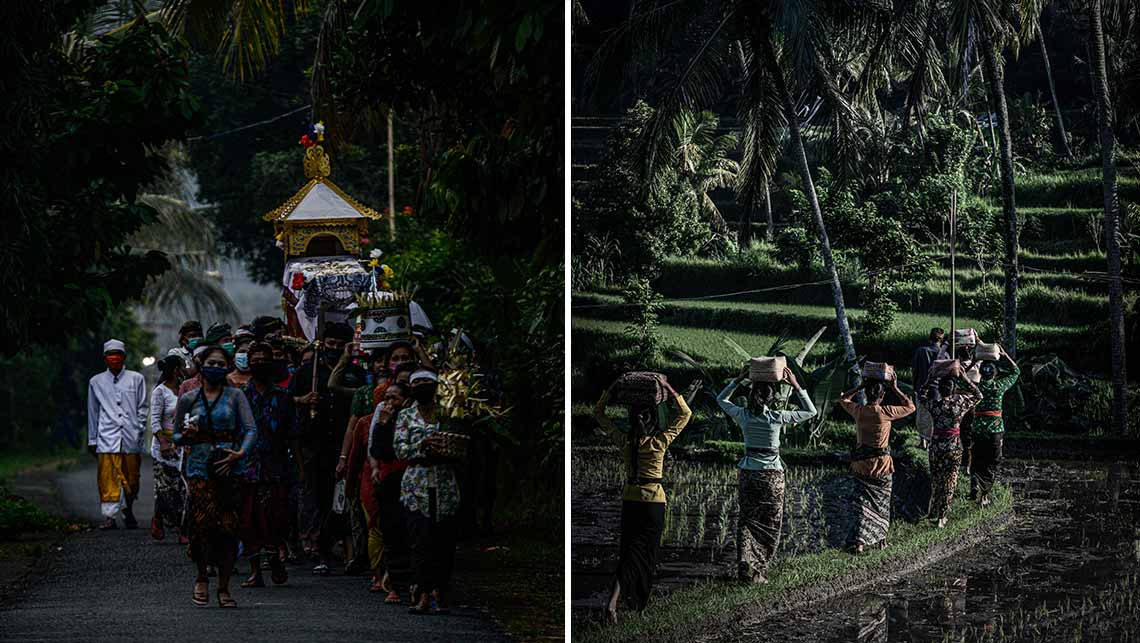
The pandemic situation worsened however, so rather than return to my home in Umalas I decided to move on. I obtained a certificate of good health from Singaraja hospital and despite an accidental fall that forced me to rest for a few days I continued my journey to Sumberkima Hill Retreat, another exceptional place of great beauty which faces the ocean and the majestic Ijen volcano and is located not far from the largest national park on Bali.

This proximity to the ocean would allow me to discover a community very different from that of Munduk, since the vast majority of the population of Sumberkima relies on the ocean for its livelihood. So after a few days of rest I started to explore, taking long boat trips at dawn and spending my days trekking in the hills which surround the property. For the second time in my life I fell in love with Bali and its people.

Do you think it’s easy for many people, especially those centred around the beaches, to forget or even ignore the true nature of Bali?
Bali has for several years now been confronted with mass tourism which is content to follow the arrows on the ground from arrival at the airport until departure. A few visits to highly tourist sites, an evening on the beach at Jimbaran, a stop in an oleh-oleh center … are enough for many of the tourists here. Some have even given up referring to the island as ‘Bali’ – it’s all about going to Canggu, visiting Deus to buy a T-shirt then on to La Brisa to make some selfies before heading out to Batubolong for a night of drinking and dancing. It seems to me only a small percentage of people who visit the island have any real knowledge of what Bali is about. Going forward it makes sense for me that the island should focus on this clientele, creating an authentic experience for visitors, rather than focusing on nightclubs and tattoo studios. It should be about quality not quantity.

Were people friendly towards you?
I’ve lived in Bali for more than 10 years now and I am familiar with the language and culture, and as with many places I have had the opportunity to explore I know that first contact is important – a smile and some kindness go a long way. Given this I experienced total immersion into the authentic and very friendly Bali, and I would like to take this opportunity to thank – from the bottom of my heart – all the people who were part of this adventure with me.
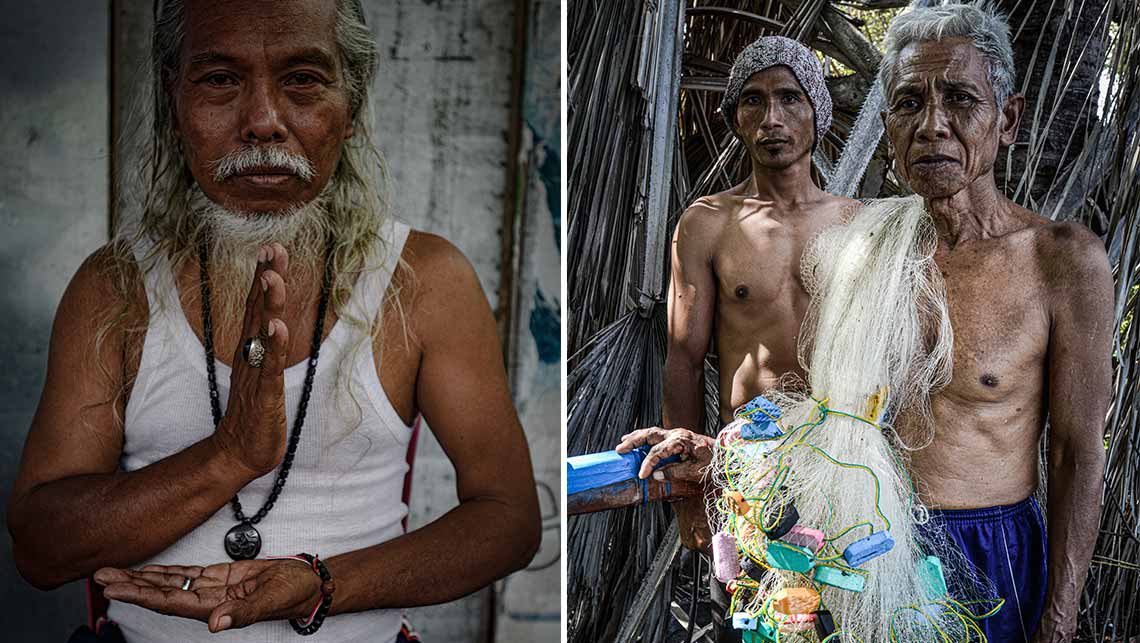
Did you see much evidence of poverty?
Most of the Balinese I met during this escapade in the north of Bali live from agriculture and fishing, and it is not uncommon to find a fisherman crossing the beach in the morning and then on to his piece of land in the afternoon to harvest peppers or rice. A large portion of the people we see working in the fields are only employees and are paid in kilos of rice at the end of the harvest, which allows them to provide for their families. When it comes to fishermen, it is not uncommon for them to come home with just enough fish to feed their own. It’s true that these men and women are not very rich but they show great dignity and very often smile, even though they have very little. They deserve great respect.

How were the villages you encountered coping with the Covid situation?
To be frank I was pleasantly surprised. At each village entrance there were check-points where you had to wash your hands, have your vehicle disinfected and of course wear a mask, all of which was accomplished in good humour.
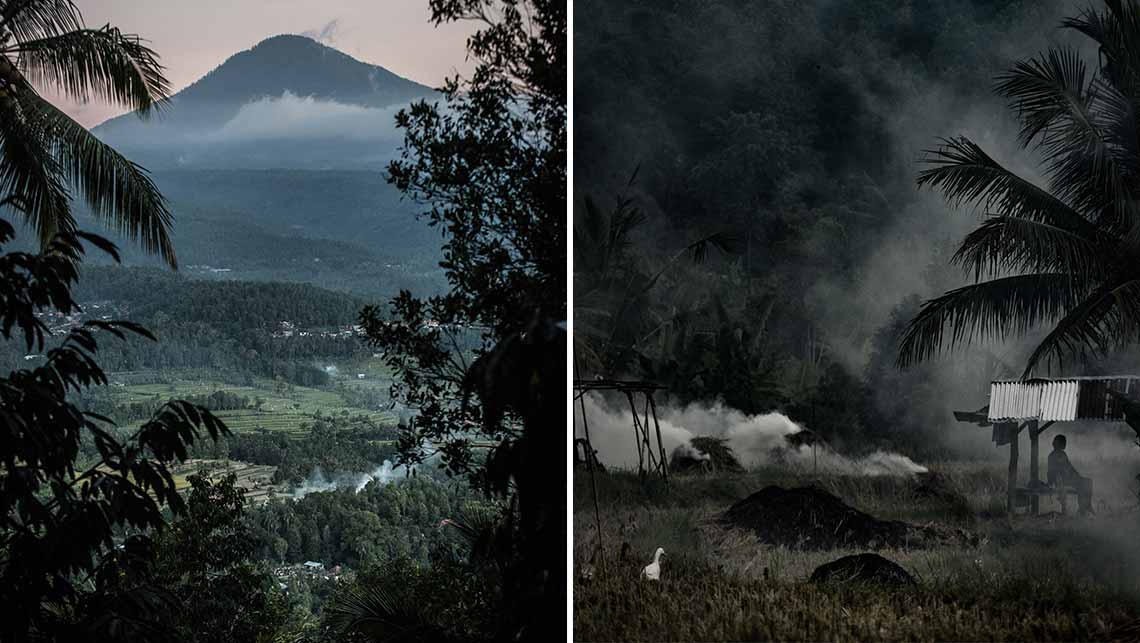
Do you think tourism in Bali has lost its direction?
Bali is better known today for its beach clubs than for the beauty of its nature and the attraction of its Hindu culture. I was delighted to see that Governor Koster had recently admitted (for the first time) that the culture of Bali has been exploited for the sake of tourism. It seems obvious to me that Bali has lost its way.

Is tourism ruining Bali?
I would not go so far as to use the word “ruin” because Bali still has the possibility of modifying its management of tourism. The colossal income of tourism transformed part of the Balinese society and at the same time the contours of the Balinese economic sector. Far too many people today see in Bali only an opportunity to do business and hardly care about the harmful consequences that ‘business at any cost’ can have on the island and its population. Let us not forget that originally Bali was an agricultural island and that it might be interesting to think about a new sector of activity instead of focusing just on tourism. The current situation described by the governor is generated by the capitalist world – whose slogan is profit, profit and more profit!

What were your most striking experiences during your travels?
I would say the meetings and the shared moments in the middle of a rice field … or on the edge of the river. There was magic every day waiting for the sun rise … on a narrow bamboo bridge over a majestic river, surrounded by hundred year old trees … or on the beach at Sumberkima at sunset. In the end the most beautiful moments were the words exchanged … a father asking his daughter to dance for us, a large family who were so happy that I took their picture. Sharing these moments with them was so enriching.
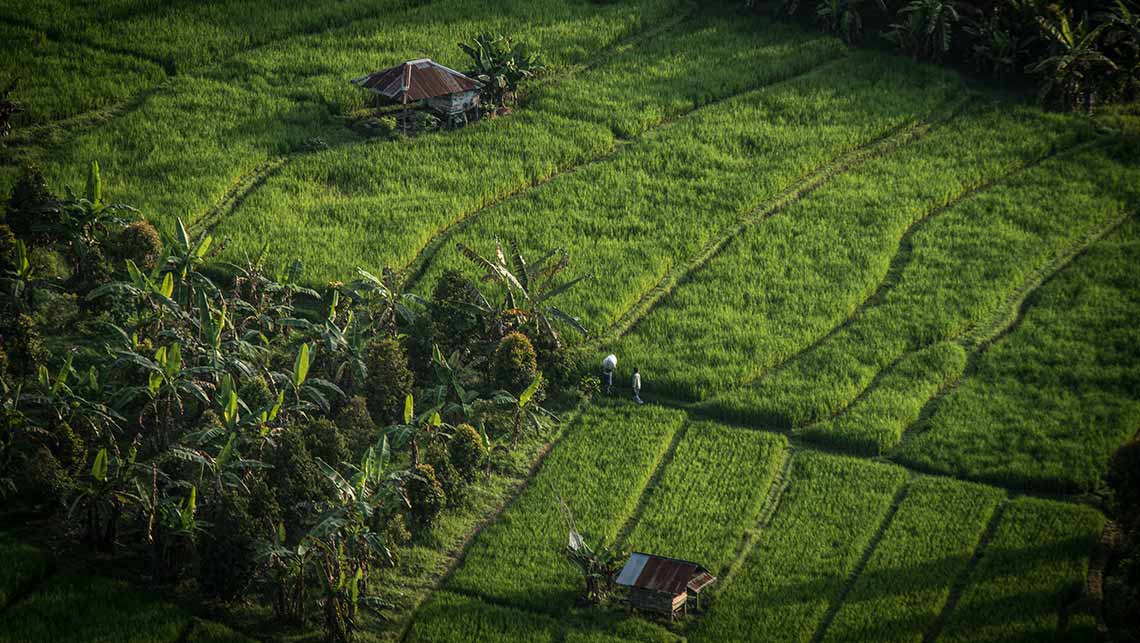
Did you find a lot of pollution?
Pollution is a recurring problem in Bali as the infrastructure doesn’t match the volume of waste created by 145,000 hotel rooms and four million inhabitants. On the Munduk side, pollution is limited to waste that we unfortunately notice in rivers since no real waste collection is effective.
In the region of the national park the presence of fish farms on the seaside are very harmful to the corals because of the chemicals used. Pollution of the environment is of course one of the great challenges of the present and future for the island. We need better management of the tourist industry to safeguard the island, but on the other hand we are entitled to wonder why Bali has yet to set up effective waste treatment plants, since the non-treatment of waste water is very harmful to the environment.
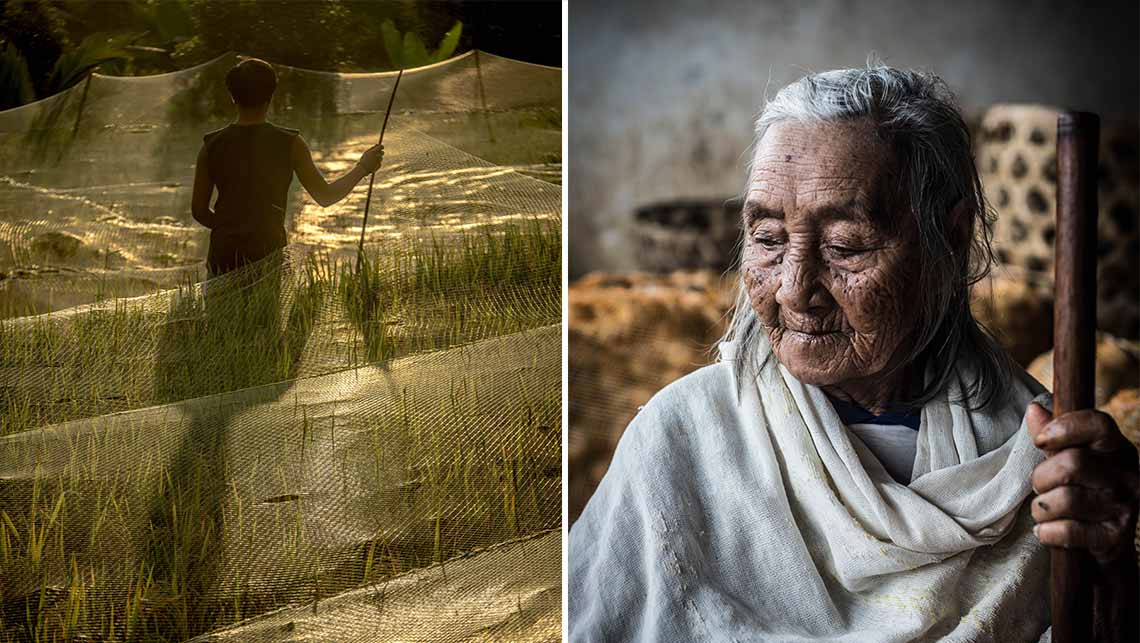
How are we going to protect what is pure about Bali?
Bali simply does not have an equivalent and should be protected as such. The difficult period that we are going through now should allow awareness and a re-examination of the policy of tourism development here.

This magical island certainly deserves something other than being managed as a huge amusement park where the only concern is the total number of entries at the end of the year. The fact that Governor Koster is apparently aware of the current Bali situation is a good starting point which requires strong action to safeguard the environment and the identity of the island of the gods. It seems to me that being inspired by the tourism policy of Bhutan or even the Galapagos could be beneficial as it is urgent to have better control over the flows of tourists arriving in Bali each year. Bali and its authorities must invest in quality and not quantity, it is in my opinion imperative in order to safeguard of this paradise that we love so much.
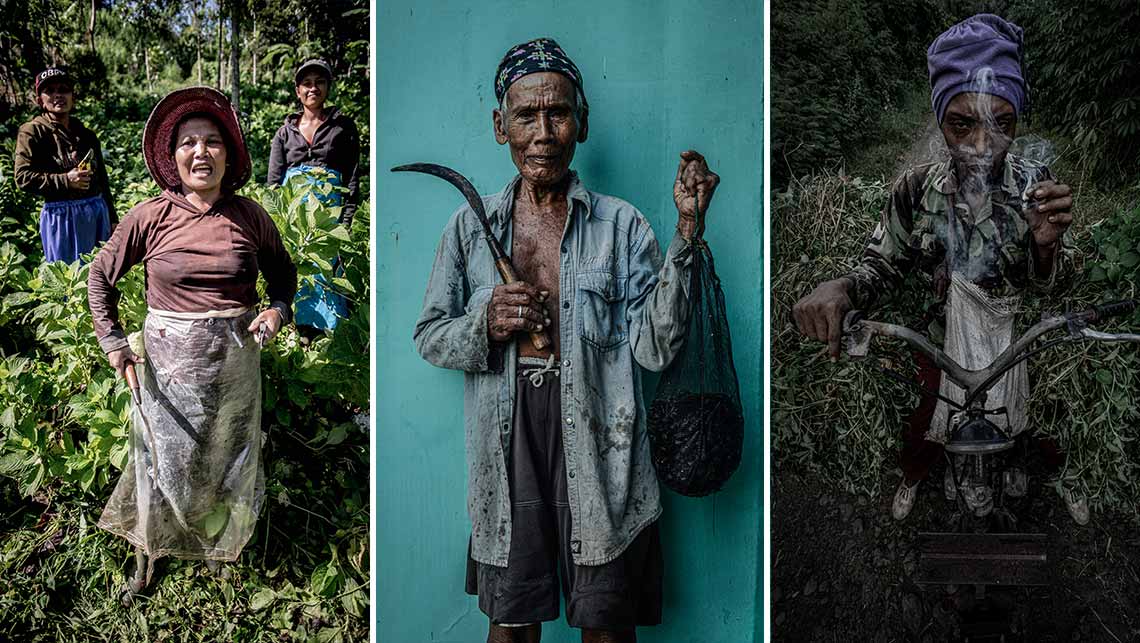
Stephane, thanks so much for talking to us.
































